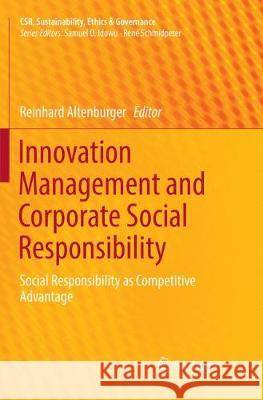Innovation Management and Corporate Social Responsibility: Social Responsibility as Competitive Advantage » książka
topmenu
Innovation Management and Corporate Social Responsibility: Social Responsibility as Competitive Advantage
ISBN-13: 9783030066970 / Angielski / Miękka / 2018 / 364 str.
Innovation Management and Corporate Social Responsibility: Social Responsibility as Competitive Advantage
ISBN-13: 9783030066970 / Angielski / Miękka / 2018 / 364 str.
cena 642,56
(netto: 611,96 VAT: 5%)
Najniższa cena z 30 dni: 616,85
(netto: 611,96 VAT: 5%)
Najniższa cena z 30 dni: 616,85
Termin realizacji zamówienia:
ok. 22 dni roboczych.
ok. 22 dni roboczych.
Darmowa dostawa!
Kategorie:
Kategorie BISAC:
Wydawca:
Springer
Seria wydawnicza:
Język:
Angielski
ISBN-13:
9783030066970
Rok wydania:
2018
Dostępne języki:
Numer serii:
000464707
Ilość stron:
364
Oprawa:
Miękka











